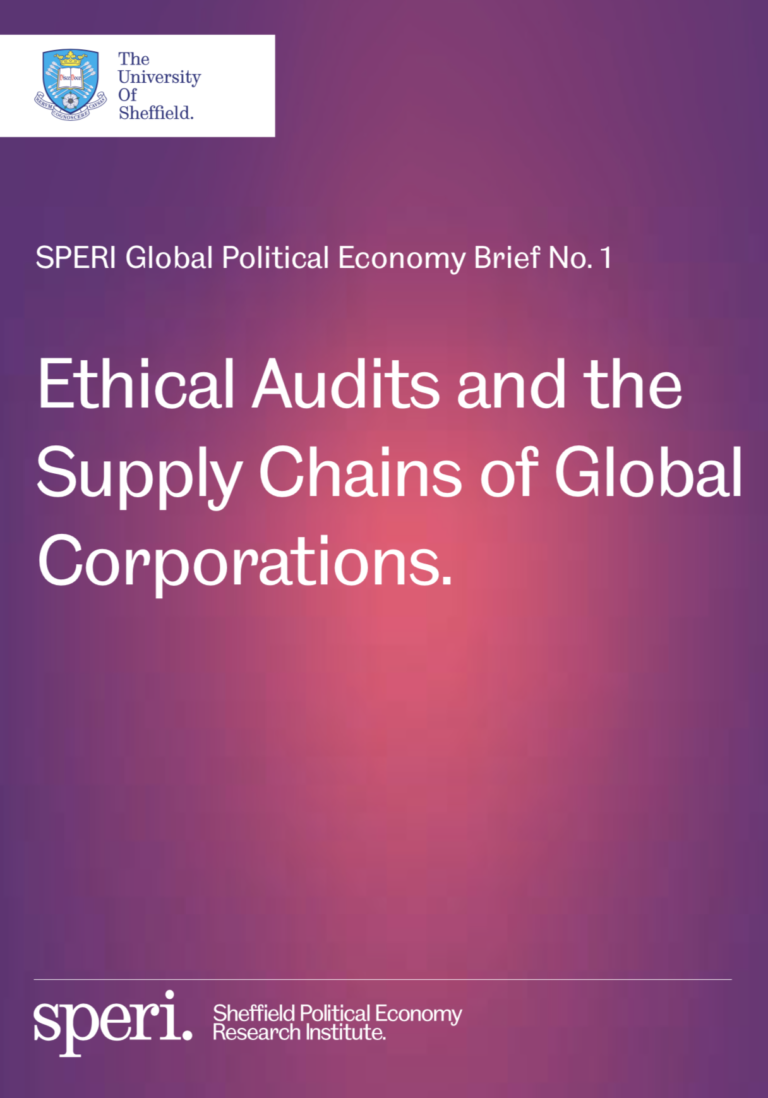Many key questions and serious concerns hang over the ethical audit regime. These include: are audits effective in identifying non-compliance and driving up standards, what does the audit regime mean for governments and NGOs, where does power lie within the audit regime and, ultimately, in whose interest is the ethical audit regime working?
To explore these issues they conducted 25 interviews (in 2012-14) with ethical auditors, business executives, NGOs and supplier firms in North America, the United Kingdom and China, as well as visiting factories in the Pearl River Delta region of China.
This new SPERI Global Political Economy Brief presents new evidence and key findings and argues that:
- Ultimately, the audit regime is ‘working’ for corporations, but failing workers and the planet. Labour abuses, poor working conditions and environmental degradation within global supply chains remain widespread.
- Audits are ineffective tools for detecting, reporting, or correcting environmental and labour problems in supply chains. They reinforce existing business models and preserve the global production status quo.
- Audits reinforce the labour and environmental problems that civil society NGOs are striving to improve.
- The audit regime, with the involvement and support of NGOs, is reducing the role of states in regulating corporate behaviour and re-orientating global corporate governance towards the interests of private business and away from social goods.

